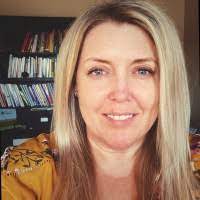Stacy Hurst, an assistant professor of reading at Southern Utah University
I listened to a podcast by some Science of Reading advocates and believe they have become desperate to promote their products. Listen to the podcast here and determine for yourself. The following are some extracts and my comments.
At minute 8.03: There is a limit as to how many words can be memorised – I heard 2,000 words.
My comment:
The Quran consists of 77,430 words and there are thousands of kids around the world who can recite the Quran.
Kids in Chinese schools have to learn 600 Chinese characters per year for 6 years. These are logographs and not alphabetic.
Ask yourself if the limit of 2,000 is misrepresented.
At minute 10.22: All you can do with those words (HFW) is that you can read them in text but they are not really yours; then when you want to use them in a sentence that use many of the same words you can’t spell them correctly, you are spelling it 4 different ways.
My comment:
Where in the world did these women get this notion from? Why are they intent on misleading parents and teachers?
When a child has rote memorised the 220 Dolch words he is able to spell them and use those words to write correct sentences. The whole idea of rote memorising the Dolch words is to helps kids get familiar with the most common words. As kids develop their reading skills, being able to memorize HFW words (common words that sometimes can't be sounded out) helps them read fluently.
This is how I helped a mother in Kenya to get her grade 4 daughter to read. The mother was told her daughter is dyslexia. Read more here and here.
I also helped a distraught mother in Victoria, Australia to get her son to read by asking her to teach her son to memorise Dolch words. Read my posts at LINK and LINK.
You may also read about the success story of another student whom I taught via Zoom by getting her mother to teach her using memorisation of Dolch Words. LINK.
At minute 15.53: we need to connect, map the sound to the spelling for orthographic mapping.
My comment:
Many SoR proponents are trying their best to misrepresent so as to promote their products and services. I have explained clearly that sounding out words is not the only way to orthographically map words. All my students easily memorise the Dolch words by rote memory.
You may read one of my many posts on rote memory here.
At minute 16.18: there are some phonetic elements that we haven’t taught yet that will be temporarily mapped until we teach the phonetic approach and then it will help.
My comment:
Where did these women get this nonsense from? Phonetic elements that have not been taught can be orthographically mapped and will last forever as long as they continue reading. Many words will be able to be figured out by kids, using patterns and analogies, once the basic alphabetic principle has been learned.
At minute 17.20: What’s the take away for teachers to teach HFW; we don’t want to teach them as whole units; we don’t want to encourage them to memorise them visually. We want to help teach them in a way to facilitate them with orthographic mapping of HFW.
My comment:
Why have they willfully neglected mentioning rote memory? Is this by design?
At minute 19.17 Q: What would you two suggest that we should stop doing in our instruction?
A: Telling students not to memorise a list of words.
My comment:
Is there any doubt that the reading level is maintained at the current level by those with a vested interest?
Note: (The following is copied from the website)
Each episode features our trio of literacy champions: Stacy Hurst, an assistant professor of reading at Southern Utah University and Chief Academic Officer at Reading Horizons; Donell Pons, a dyslexia specialist, educator, presenter and writer, who now works with adults who struggle with reading; Lindsay Kemeny, an innovative, dedicated second-grade teacher who is a CERI certified Structured Literacy Classroom Teacher.
Here is a post on Lindsay Kemeny which I urge you to read.
https://www.dyslexiafriend.com/2021/12/why-insist-on-research-reports-for.html#more

No comments:
Post a Comment